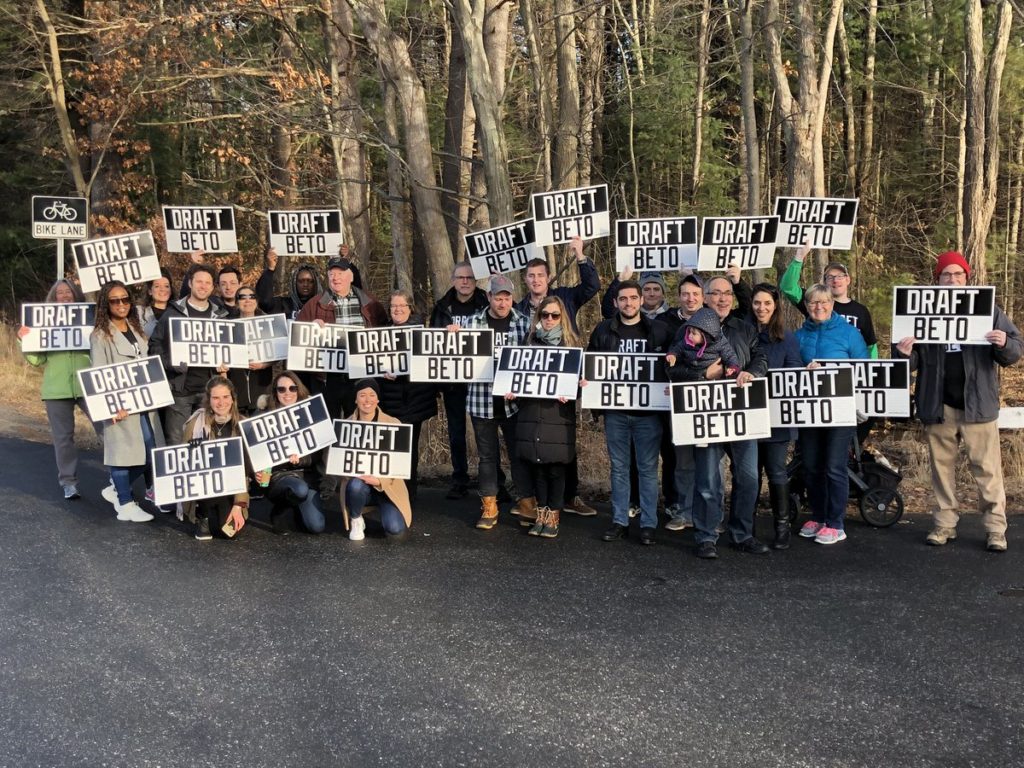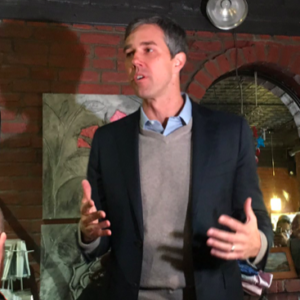Word that former Texas congressman Beto O’Rourke had finally wrapped up his Kerouac-style road trip and officially hit the POTUS campaign trail electrified cable news pundits and social media Thursday morning. But in First-In-The-Nation New Hampshire, the news was largely greeted with a yawn.
“I don’t know what would make him more appealing than several other candidates already in the race,” one prominent New Hampshire Democrat told NHJournal on background. “I just shrugged it off.”
Jim Demers, a key New Hampshire strategist and supporter of Sen. Cory Booker, said the move was expected. “The list of candidates keeps growing, and New Hampshire hotels and coffee shops are looking forward to a banner year,” he said.
Translation: O’Rourke’s just another candidate in a crowded field.
While O’Rourke does have some New Hampshire supporters, most notably Concord attorney Jay Surdukowski who’s been promoting the local #DraftBeto movement for months, there’s no sign of the rock-star reaction to his candidacy in New Hampshire that’s Beto’s getting elsewhere. If anything, there are rumblings of resentment from local Democrats still waiting for the final 2020 primary field to take shape.

Volunteers gather at a “Day of Action” event for the Draft Beto movement in Manchester, NH on December 15, 2018.
“Right now, it feels like he’s the media’s candidate,” Democratic activist Judy Reardon told NHJournal. She also tweeted out some critiques of the media coverage Thursday morning.
“Looks like MSNBC is giving Beto the nonstop coverage Trump got in 2015 and 2016. Great for Beto but a disservice to voters trying to learn about all the candidates. The answers he’s giving to questions are not different than those I’ve seen other candidates give in NH.”
“Anchor and reporter on CNN marveling at fact Beto didn’t use notes in answering voters’ questions. I haven’t seen ANY candidate use notes to answer questions from voters. Ridiculous,” she tweeted.
Columnist and pundit Ruben Navarrette, who grew up in Texas and has written extensively about O’Rourke’s political career, says New Hampshire voters should get used to it. “People like people who remind them of themselves,” he says. “Look at Beto–he’s a Gen-X, liberal white guy who went to an Ivy League college. Just like the media who are covering him.”
So far, however, the glossy, Vanity Fair coverage hasn’t translated into the polls. In New Hampshire, O’Rourke’s got the same six percent support that he enjoys nationally. Of course, that can change once he comes north to campaign, and at least one Granite State political observer expects it will.
“Beto is going to stand out in this race because he is different. His style of campaigning is different,” says Neil Levesque, executive director of the New Hampshire Institute of Politics at St. Anselm College. “He has a huge donor base from his Senate run, and he attracts attention with almost everything he does.
“Democratic voters have historically chosen a new, fresh candidate,” Levesque says, “and clearly Beto fits that.”
And what does O’Rourke’s announcement mean for the rest of the field in the nation’s first primary?
“The progressive lane to the nomination just got more crowded,” political science professor Wayne Lesperance of New England College tells NHJournal. “Beto’s entrance probably hurts [Sen. Eliabeth] Warren the most, and at a time when she desperately needs to finish first or second in New Hampshire.”
“The biggest winner is any Democrat running on a more moderate platform,” Lesperance says. “Biden benefits without even having entered the race.”

